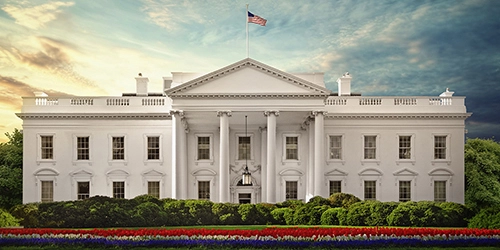
February 26, 2025 Update
As discussed in our February 4 and 10, 2025, updates, U.S. District Court Judge Loren AliKhan issued on February 3, 2025, a TRO prohibiting the Trump Administration “from implementing, giving effect to, or reinstating under a different name OMB memorandum M-25-13 freezing all federal financial assistance under open awards.” On February 25, 2025, Judge AliKhan granted a preliminary injunction, ordering as follows:
- Enjoining the Trump Administration “from implementing, giving effect to, or reinstating under a different name the unilateral, non-individualized directives in OMB Memorandum M-25-13 with respect to the disbursement of Federal funds under all open awards”;
- Requiring the Trump Administration to notify all agencies to which OMB memorandum M-25-13 was addressed of the preliminary injunction and instructing “those agencies that they may not take any steps to implement, give effect to, or reinstate under a different name the unilateral, non-individualized directives in” the memorandum with respect to disbursement under open awards and, further, instructing “those agencies to continue releasing any disbursements on open awards that were paused due to” the memorandum; and
- Requiring the Trump Administration to “file a status report on or before February 28, 2025, apprising the court of the status of their compliance” with the preliminary injunction and “providing a copy of the written notice” issued to the agencies.
Related to the existing TRO issued by the U.S. District Court for the District of Rhode Island, U.S. District Court Judge John “Jack” McConnell, Jr., denied the Trump Administration’s motion to stay pending appeal on February 12, 2025. An in-person hearing on the preliminary injunction was held on February 21, 2025. The TRO continues to be in effect pending the court’s ruling on the motion for preliminary injunction.
February 12, 2025 Update
The evening of February 11, 2025, the United States Court of Appeals for the First Circuit denied the Administration’s request for an administrative stay of the TRO and subsequent order enforcing its TRO issued by the United States District Court in the District of Rhode Island, pending the Administration’s motion for a stay of the TRO and subsequent order pending appeal. In denying the request, the First Circuit was unconvinced that the TROs and subsequent order “. . . bars both the President and much of the Federal Government from exercising their own lawful authorities to withhold funding without the prior approval of the district court.” In its order, the First Circuit notes that neither the TROs nor the subsequent order “. . . stop [the Administration] from limiting access to funds without any ‘preclearance’ from the district court ‘on the basis of applicable authorizing statutes, regulations, and terms’.” Memoranda related to the Administration’s motion for a stay pending appeal are due on February 13, 2025.
February 10, 2025 Update
Earlier today, U.S. District Court Judge John McConnell, Jr. followed up on the TRO he issued on January 31, 2025, with another order, noting that the Administration had not complied with the earlier TRO and calling on the administration to “immediately restore frozen funding . . . end any federal funding pause . . . take every step necessary to effectuate the TRO . . . comply with the plain text of the TRO not to pause any funds based on pronouncements pausing funding incorporated into the OMB Directive, like Section 7(a) of the Unleashing Executive Order . . . immediately restore withheld funds . . . [and] resume funding of institutes and other agencies.” Additionally, the hearing on the merits for the case before U.S. District Judge Loren AliKhan has been scheduled for February 20, 2025. As noted above, the TRO she issued in that case is in effect until the hearing and ultimate decision on the preliminary injunction motion in that case.
February 4, 2025 Update
On February 3, 2025, U.S. District Court Judge Loren AliKhan followed up on the administrative stay discussed above and issued a Temporary Restraining Order (TRO) enjoining the Administration “from implementing, giving effect to, or reinstating under a different name the directives in OMB Memorandum M-25-13 with respect to the disbursement of Federal funds under all open awards.” In addition, Judge AliKhan explicitly orders the Administration to “provide written notice of the court’s temporary restraining order to all agencies to which OMB Memorandum M-25-213 was addressed . . . [instructing] those agencies that they may not take any steps to implement, give effect to, or reinstate under a different name the directives” in the memorandum and “to release any disbursement on open awards that were paused due to” the memorandum. In this TRO, Judge AliKhan references continued difficulties that federal grant recipients have had in accessing such funds despite Judge AliKhan’s administrative stay issued on January 28, 2025 and Judge McConnell’s TRO issued on January 31, 2025. Furthermore, Judge AliKhan addressed the issue of Judge McConnell’s previously issued TRO, noting that “[t]his court has no control over the duration or scope of the District of Rhode Island’s TRO. Failing to grant a TRO here when Plaintiffs have met the requirements for one would leave them unprotected and vulnerable to further harm.” In addition to enjoining the Administration’s funding pause, this TRO also requires the Administration to file a status report by February 7, 2025 apprising the court of the status of its compliance with this TRO. Finally, this TRO orders the parties to propose a preliminary injunction briefing schedule by February 7, 2025 and will remain in effect until the hearing on the merits and ultimate decision regarding the preliminary injunction motion.
January 31, 2025 Update
On January 31, 2025, U.S. District Court Judge John McConnell, Jr., issued a Temporary Restraining Order (TRO) effective until the court (the United States District Court for the District of Rhode Island) rules on the states’ motion for a preliminary injunction. Under the TRO, the Administration may “not pause, freeze, impede, block, cancel, or terminate . . . awards and obligations to provide federal financial assistance to the States, and . . . shall not impede the States’ access to such awards and obligations. . . .” Judge McConnell’s TRO also prohibits the Administration from “reissuing, adopting, implementing, or otherwise giving effect to the OMB Directive under any other name or title or through any other . . . agency supervised, administered, or controlled by” the Administration. The judge explicitly noted the White House Press Secretary’s statement of January 29, 2025, in the TRO.
President Trump was inaugurated on January 20, 2025, and issued numerous executive orders later that afternoon. Many of these executive orders, including one that directly referenced infrastructure, paused federal funding for the purpose of giving the Trump Administration the opportunity to review that funding against the Administration’s priorities. Since these executive orders were signed, there have been several developments as stakeholders grappled with the impact of the orders and as the Trump Administration has attempted to clarify and issued subsequent direction.
At the time of posting this blog, a federal judge has enjoined the effectiveness of elements of the Trump Administration’s funding pause until February 3, 2025, and another temporary restraining order is under consideration. The Trump Administration’s funding pause will be further examined in our federal courts in the coming weeks. This blog post will summarize the relevant actions to date and provide some relevant background information and open questions.
As noted above, on January 20, 2025, the President signed an executive order entitled “Unleashing American Energy.”
- Section 2(e) states that it is the policy of the United States “to eliminate the ‘electric vehicle (EV) mandate’ and promote true consumer choice . . . by considering the elimination of unfair subsidies and other ill-conceived government-imposed market distortions that favor EVs over other technologies and effectively mandate their purchase by individuals, private businesses, and government entities alike by rendering other types of vehicles unaffordable.”
- Section 7, entitled “Terminating the Green New Deal” requires that “All agencies shall immediately pause the disbursement of funds appropriated through the Inflation Reduction Act of 2022 (Public Law 117-169) or the Infrastructure Investment and Jobs Act (Public Law 117-58), including but not limited to funds for electric vehicle charging stations made available through the National Electric Vehicle Infrastructure Formula Program and the Charging and Fueling Infrastructure Discretionary Grant Program.” (emphasis added)
- Section 7 also requires all federal agencies to “review their processes, policies, and programs for issuing grants, loans, contracts, or any other financial disbursements of such appropriated funds for consistency with the law and the policy outlined in section 2 of this order. Within 90 days of the date of this order, all agency heads shall submit a report to the Director of the NEC and Director of OMB that details the findings of this review, including recommendations to enhance their alignment with the policy set forth in section 2. No funds identified in this subsection (a) shall be disbursed by a given agency until the Director of OMB and Assistant to the President for Economic Policy have determined that such disbursements are consistent with any review recommendations they have chosen to adopt.” (emphasis added)
Given that this executive order directs all federal agencies to “pause the disbursement of funds appropriated through the . . . Infrastructure Investment and Jobs Act,” the Federal Highway Administration shut down its reimbursement portal for the entire Federal-aid Highway Program for several hours on Tuesday, January 21, 2025.
In response, the Office of Management and Budget (“OMB”) issued Memo M-25-11 late in the day on January 21, 2025.
- This memo clarified that the pause on funding described in the executive order “only applies to funds supporting programs, projects, or activities that may be implicated by the policy established in Section 2 of the order. This interpretation is consistent with section 7’s heading (‘Terminating the Green New Deal’) and its reference to the ‘law and the policy outlined in section 2 of th[e] order.’ For the purposes of implementing section 7 of the Order, funds supporting the ‘Green New Deal’ refer to any appropriations for objectives that contravene the policies established in section 2. Agency heads may disburse funds as they deem necessary after consulting with the Office of Management and Budget.” (emphasis added)
The Trump Administration took the further step on January 27, 2025, to issue a broader federal funding pause. Extracts of OMB’s Memo M-25-13 (emphasis added) are as follows:
- “This memorandum requires Federal agencies to identify and review all Federal financial assistance programs and supporting activities consistent with the President’s policies and requirements.”
- “To implement these orders, each agency must complete a comprehensive analysis of all of their Federal financial assistance programs to identify programs, projects, and activities that may be implicated by any of the President’s executive orders. In the interim, to the extent permissible under applicable law, Federal agencies must temporarily pause all activities related to obligation or disbursement of all Federal financial assistance, and other relevant agency activities that may be implicated by the executive orders”
- “This temporary pause will provide the Administration time to review agency programs and determine the best uses of the funding for those programs consistent with the law and the President’s priorities. The temporary pause will become effective on January 28, 2025, at 5:00 PM. Even before completing their comprehensive analysis, Federal agencies must immediately identify any legally mandated actions or deadlines for assistance programs arising while the pause remains in effect. Federal agencies must report this information to OMB along with an analysis of the requirement. OMB also directs Federal agencies to pause all activities associated with open NOFOs, such as conducting merit review panels.”
- “Each agency must pause: (i) issuance of new awards; (ii) disbursement of Federal funds under all open awards; and (iii) other relevant agency actions that may be implicated by the executive orders, to the extent permissible by law”
- “To the extent required by law, Federal agencies may continue taking certain administrative actions, such as closeout of Federal awards (2 CFR 200.344), or recording obligations expressly required by law.”
- “Additionally, agencies must, for each Federal financial assistance program: (i) assign responsibility and oversight to a senior political appointee to ensure Federal financial assistance conforms to Administration priorities; (ii) review currently pending Federal financial assistance announcements to ensure Administration priorities are addressed, and, subject to program statutory authority, modify unpublished Federal financial assistance announcements, withdraw any announcements already published, and, to the extent permissible by law, cancel awards already awarded that are in conflict with Administration priorities, and; (iii) ensure adequate oversight of Federal financial assistance programs and initiate investigations when warranted to identify underperforming recipients, and address identified issues up to and including cancellation of awards.”
- “For the purposes of this memorandum, Federal financial assistance includes: (i) all forms of assistance listed in paragraphs (1) and (2) of the definition of this term at 2 CFR 200.1 [which includes grants, cooperative agreements, direct appropriations, loans, loan guaranties, and interest subsidies]; and (ii) assistance received or administered by recipients or subrecipients of any type except for assistance received directly by individuals.”
The Trump Administration issued some further guidance related to OMB Memo M-25-13 on January 28, 2025, including a Q&A document that clarified that “[a]ny program not implicated by the President’s Executive Orders is not subject to the pause.” In addition, the Trump Administration circulated a worksheet to federal agencies with a 50-page table listing federal financial assistance programs with columns for agencies to complete regarding whether that financial assistance program complies with the Trump Administration’s policies, including whether that federal financial assistance program “impose[s] an undue burden on the identification, development, or use of domestic energy resources (including through funding under the Inflation Reducing Act of 2022; and the Infrastructure Investment and Jobs Act).”
However, late in the afternoon on January 28, 2025, U.S. District Court Judge Loren AliKhan issued an administrative stay stopping the pause on “disbursement of Federal funds under all open awards” pursuant to OMB Memo M-25-13 from taking effect until February 3, 2025. Specifically, the stay stipulated that the federal government “shall refrain from implementing OMB Memorandum M-25-13 with respect to the disbursement of Federal funds under all open awards.” Notably, the stay does not address the President’s executive orders directly but only addresses OMB Memorandum M-25-13.
Also on January 28, 2025, upwards of 23 state attorneys general filed a complaint challenging the President’s authority to impose a government-wide pause on federal awards and OMB’s basis for pausing the disbursement and obligation of trillions of federal dollars. The complaint asserts that the pause in disbursement and obligation of federal funds is a violation of the separation of powers doctrine and Spending, Presentment, Appropriations, and Take Care Clauses of the United States Constitution.
On January 29, 2025, OMB formally rescinded Memo M-25-13, and the White House Press Secretary clarified that this rescission applies only to the Memo, not the underlying executive orders.
On January 29, 2025, Judge John McConnell, Chief Judge for the United States District Court for the District of Rhode Island, asked the state attorneys general who filed the complaint noted above to make a new filing in light of OMB’s recission of Memo M-25-13 and the White House Press Secretary’s comments subsequent to the recission.
So, with all these developments since President Trump’s inauguration, some background information is important to keep in mind:
- Federal financial assistance is “obligated” when the federal government “promises to spend the money, either immediately or in the future. As an example, an obligation occurs when a federal agency signs a contract, awards a grant, purchases a service, or takes other actions that require it to make a payment.” Obligation of funds is different from “outlay” or “disbursement” of funds, which refers to the actual payment of those funds from the federal government to the recipient.
- The federal-aid highway program and majority of the funds administered by the Federal Transit Administration are not actually “appropriated” but are authorized contract authority, which is a distinct form of federal budget authority that is then apportioned to state DOTs and public transportation agencies for those recipients to draw down for any purpose consistent with the statutory authorization for those programs. These “formula” programs are reimbursable, in that the recipient incurs costs and then submits a reimbursement request to the federal government.
- Practically speaking, pausing disbursement of funds for a federal formula program would mean that statutorily-authorized costs incurred by recipients would not be reimbursed.
While the Trump Administration’s actions and subsequent judicial action raise several questions, three key questions are as follows:
- What is the extent of the applicability of the Trump Administration funding pause?
- The “Unleashing American Energy” EO and subsequent OMB clarification in Memo M-25-11 appear to define “Green New Deal” as anything that “that contravene the policies established in section 2” of the EO, which calls for “elimination of unfair subsidies and other ill-conceived government-imposed market distortions that favor EVs over other technologies.”
- This definition does not enumerate each specific programs that the Trump Administration deems to fall within this category, but at the very least it includes the NEVI and CFI programs administered by FHWA.
- Furthermore, OMB Memo M-25-13 instituted a pause—prior to being stayed and then rescinded—on both obligation and disbursement of federal financial assistance (which the memo defines extremely broadly and includes direct funding and loans) for anything “implicated by any of the President’s executive orders.” As such, it appears that the Trump Administration originally intended the applicability of this pause to be limited to the same “Green New Deal” definition described above.
- What are the constitutional and statutory implications of the Trump Administration’s funding pause?
- The legal issue in question here is whether the Trump Administration’s funding pause is an “impoundment” in violation of the separation of powers clauses in the Constitution and under the Impoundment Control Act (codified at 2 USC §§ 681-88).
- On the constitutionality of impoundment, the Justice Department’s Office of Legal Counsel previously found that “[t]here is no textual source in the Constitution for any inherent authority to impound.”
- In addition, the Impoundment Control Act only allows the President to pause funding approved by Congress in limited circumstances after the President provides notice to Congress.
- Whether the Trump Administration’s funding pause violates the law is the issue currently before the federal courts.
- What does the Trump Administration funding pause mean for purposes of executed funding agreements or other forms of federal “obligation” of such funding?
- As a general matter, when the federal government provides funding to a recipient, this is often memorialized in a contract or other legal instrument. These documents include rights and obligations of the federal government and the recipients. One of the ways that the federal government obligates funds is through these instruments. For the federal government to pause the disbursement of funds under these existing federal obligations would result in contractual/commercial remedies available to the recipients, in addition to the constitutional/statutory basis that a recipient may have to challenge the validity of these actions.
As the Trump Administration’s actions are further clarified and ultimately take effect, we can be confident that many more developments are to come.
- Partner
Shant Boyajian advises public agencies on a wide range of innovative methods to procure and deliver the nation’s largest, most complex infrastructure projects. Clients have found tremendous value in his deep experience in ...
- Partner
Ann-Therese Schmid has advised public agencies on traditional and alternative project development and delivery for more than 20 years. She offers deep background with federal regulatory compliance and is a recognized leader in ...
- Senior Policy Advisor
Chris Carney has found success through public service. He represented Pennsylvania’s 10th Congressional District for two terms and was a tenured professor of political science specializing in international relations at Penn ...
Nossaman’s 30-plus infrastructure attorneys offer clients, colleagues, strategic partners and industry media a wealth of practical experience, insider insight and thoughtful analysis here on Infra Insight. We blog about what we know best, from industry-leading procurements to local and national policy developments that affect the market and our clients.
Stay Connected
 RSS Feed
RSS Feed
Categories
- Airports
- Alternative Project Delivery
- Bridges
- California Environmental Quality Act
- Cybersecurity
- Design-Build
- Financing
- High-Speed Rail
- Job Opening
- Legislation
- News
- P3s
- Policy
- Ports
- Rail and Transit
- Social Infrastructure
- Tollroads/ Turnpikes/ Managed Lanes
- Transportation Infrastructure
- Tunnels
- Water



